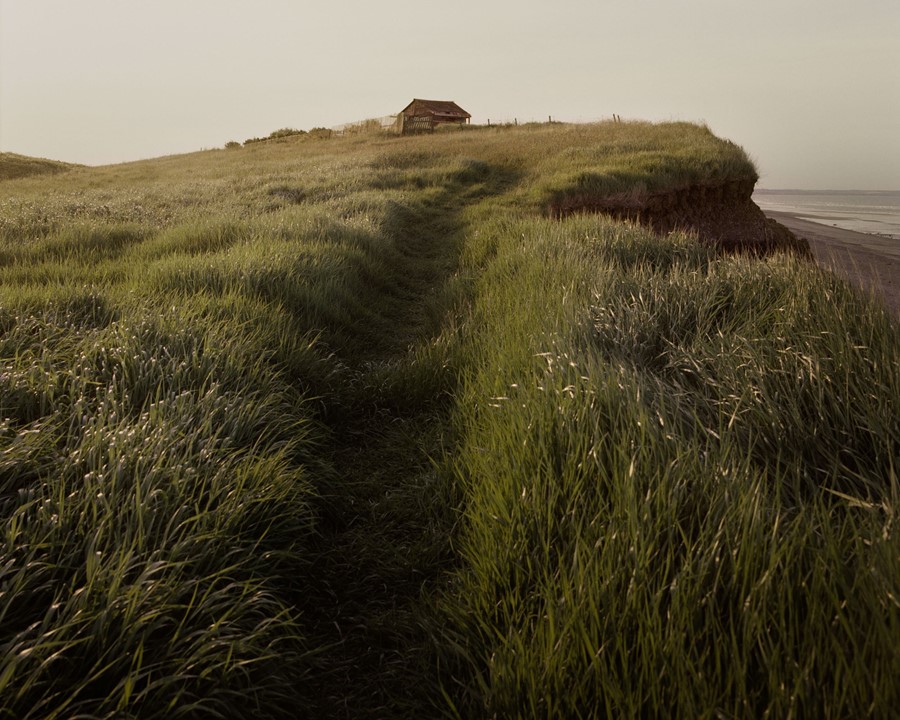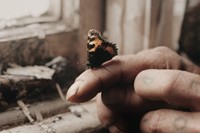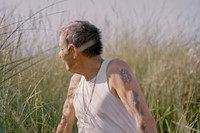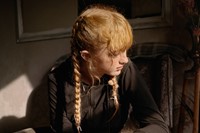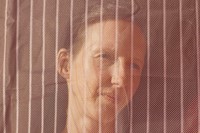Recently exhibited at Photo London 2022, Max Miechowski’s new series Land Loss captures quiet scenes of cliffs, clouds and coastal paths on the fastest eroding coastline in Europe
In 2020, Max Miechowski released A Big Fat Sky. Shot the previous summer, the project put forward a version of the British east coast gloriously bathed in hot sunshine, defined by warm tones and 1980s fairground rides. In his latest series Land Loss, he examines the environment in those villages and hamlets just beyond the towns of A Big Fat Sky, where the terrain has been injured by the fastest eroding coastline in Europe.
The two projects are not exactly typical of Miechowski’s practice, which in the past has focused more on classic portraiture, but they mirror his sensitivity and interest in community. Previously working in the music industry, at 26 he enrolled at Leeds College of Art to study photography, staying just a year before moving to London. While there, he made his first significant body of work, photographing people who lived on his street. “A lot of that was about this idea of trust,” he tells AnOther, alluding to the foundations of his current work.
Arriving in southeast London, he found inspiration in the buzz of his neighbourhoods – at various points in New Cross, Peckham and Brixton. “That definitely informed my work, because I felt so excited about being in those areas, surrounded by creative people,” he says. “I started exploring in a geographical sense, working in spirals from my front door – down every street, every alleyway – using southeast London as the parameters within which to make work. The idea was to make pictures of anything and everything, but to focus largely on portraiture and people.” His acclaimed Burgess Park series was produced in this period.
Eventually however, Miechowski grew bored of making work in the city and decided to turn his attention to Britain’s east coast. “I grew up in Lincolnshire and spent a lot of time on the east coast, places in Norfolk and Yorkshire. I thought it’d be nice to travel the coastline, from the south and drive all the way up north. Just as an exercise really, to make images,” he explains. “I actually thought it was going to be a little dull, as a landscape, but it was really fruitful. I felt connected in a big way.”
Sleeping in his car for a week at a time, Miechowski shot from sunrise to sunset; Land Loss developed out of his increased awareness of the coastal erosion and landslides happening on the peripheral areas. “Initially I wanted it to be about this geography of the landscape, an exploration of the process – the moving, changing and disappearing – but I couldn’t help knocking on people’s doors and introducing myself.”
The first door he knocked on led to a particularly profound exchange. “This guy’s dad had died, and we had a really deep, three-hour chat about losing things, things shifting and changing continuously. He was living in this upturned boat on what was essentially a sand dune, due to disappear.” Despite reservations, Miechowski made his first Land Loss portrait of the man who he remains in touch with today, although it doesn’t appear in the final series. “When I look at it, I can’t remove the story. It’s too potent, it adds too much weight to the image. No photograph could do that experience justice.”
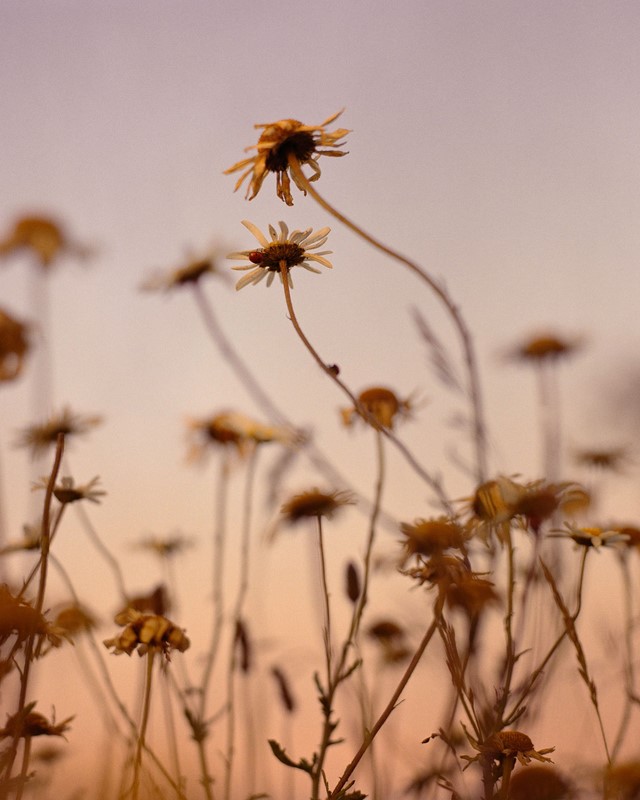
Further portraits do appear – alongside quiet scenes of cliffs, clouds and coastal paths – however, unlike in Miechowski’s early work, most faces are turned away. “I think it’s a subconscious thing, where I don’t feel immediately connected; it’s not my direct experience,” he says. “In earlier work, it was more about engagement, there was a sub-narrative of my experience within these places. Sharing the same moment in space and time, that was what excited me.”
Recently exhibited at Photo London, the project claimed Miechowski the Photo London X Nikon Emerging Photographer of the Year prize, which he describes mostly as a nice experience. “Doing photography, making art, it can be a series of disappointing events often, so [awards] are a little green light to know that it’s at least registering,” he notes. “For me, it was a great way to introduce the work to people, but it’s not finished at all.”
See more of Land Loss by Max Miechowski here.
